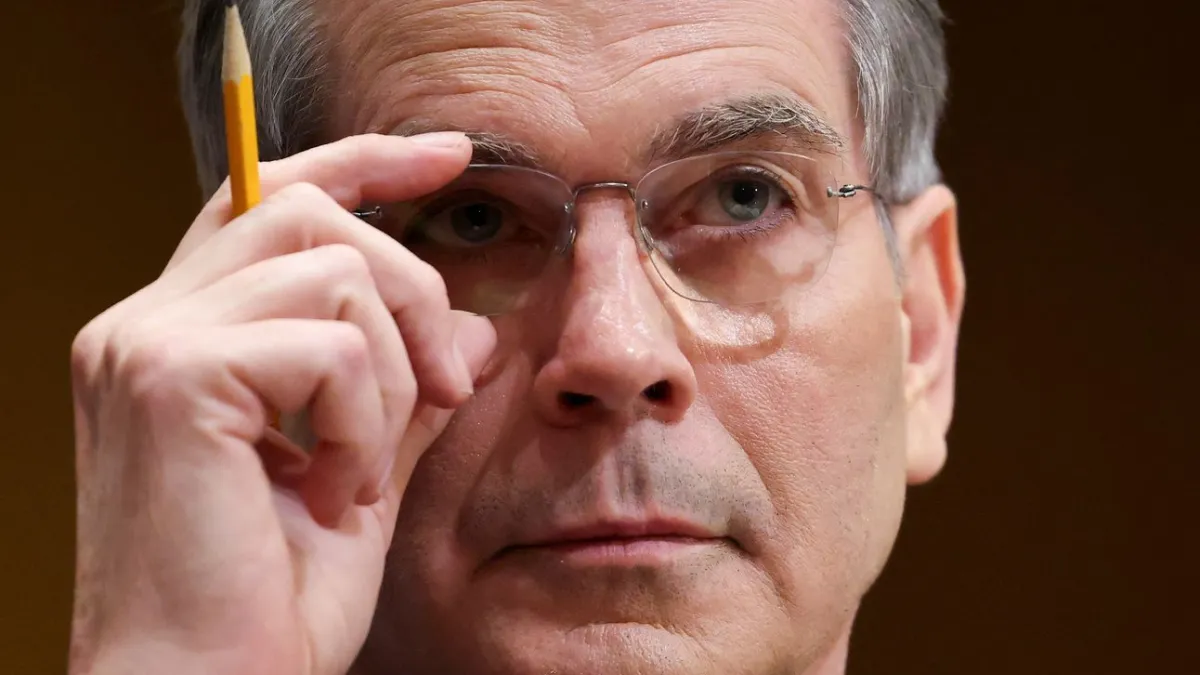
Treasury Secretary Scott Bessent said Tuesday that tariff revenues could be higher than expected this year, and the money collected could be used to make payments on the national debt, with refund checks for taxpayers being a lower priority.
“I've been saying that tariff revenue could be $300 billion this year. I'm going to have to revise that up substantially,” Bessent told CNBC’s “Squawk Box” morning show. “We're going to bring down the deficit to GDP. We'll start paying down the debt, and then at that point that can be used as an offset to the American people.”
Bessent provided no further details on how high he thinks tariff revenues could go. The U.S. collected about $28 billion in customs duties in July, a big jump from the $8 billion collected in July a year ago. If that monthly level of revenue were to continue, the annual total would come to about $350 billion.
Trump administration officials have discussed various uses for the revenues, including reducing the budget deficit, paying down the national debt and providing a refund check to taxpayers.
Longer-term outlook: Experts caution that it’s probably too early to reach any firm conclusions about total tariff revenues. Imports have surged recently as U.S. businesses — which pay the tariffs directly on imported goods before passing a portion of the cost onto consumers — rushed to obtain supplies before the tariffs imposed by President Trump took effect, boosting import revenues. Some analysts expect customs duties to fall back to some degree as the tariffs become more noticeable to consumers this fall in the form of higher prices. The tariffs also still face legal challenges that could invalidate them.
Economists at the Yale Budget Lab estimate that tariff revenues will come to $247 billion in fiscal year 2026. Over 10 years, the estimate for total collections comes to $2.7 trillion on a static basis, and $2.2 trillion on a dynamic basis once the negative economic effects of the tariffs are taken into account.
Even though those revenue numbers are large in historical terms, they are likely too small to have a significant effect on the national debt. The projected tariff revenues won’t even cover the interest cost of the interest payments on the debt.
The net interest paid by the Treasury in July was roughly $90 billion, about three times the customs duties collected. Even if the annual tariff revenues were used to retire existing debt, they would still come to less than 1% of the total, which now exceeds $37 trillion.
Desmond Lachman, a senior fellow at the conservative American Enterprise Institute, told Fortune that the $300 billion in tariff revenues administration officials have highlighted “is a drop in the ocean in relation to the amount of red ink they’ve got.” Joao Gomes, a professor of finance and economics at the Wharton School, said the tariff revenues could help offset the cost of the Republican tax cuts Trump signed into law, but, “The idea that [tariffs are] going to pay down the national debt is, of course, greatly overstating it.”
Ratings agency pleased: While the tariff revenues may not put a dent in the national debt, they are making one of the three top ratings agencies breathe a little easier. S&P Global Ratings said late Monday that it has reaffirmed its AA+ credit rating for the United States, in part due to the higher customs duty collections. The announcement comes just a few months after Moody's Ratings downgraded the U.S. due to concerns about the size of the national debt and the potential damage from Trump’s trade policies.
“Amid the rise in effective tariff rates, we expect meaningful tariff revenue to generally offset weaker fiscal outcomes that might otherwise be associated with the recent fiscal legislation, which contains both cuts and increases in tax and spending,” S&P analysts said.
The outlook remains stable, the analysts added, with notable “revenue buoyancy” helping to offset “fiscal slippage” driven by tax cuts and spending increases: “The stable outlook indicates our expectation that although fiscal deficit outcomes won't meaningfully improve, we don't project a persistent deterioration over the next several years.”
The analysts also provided a fairly pessimistic outlook on the prospect for meaningful improvement in the country’s fiscal situation.
“Bipartisan cooperation to strengthen the U.S. fiscal profile--namely to meaningfully lower deficits and tackle budgetary rigidities--remains elusive,” the analysts wrote. “However, we expect that cross-party negotiations on contentious issues, such as the government's debt ceiling--which has been raised or suspended on almost 80 occasions since 1960--will continue to be resolved in a timely fashion considering the severe consequences of not doing so on financial markets and on the economy.”